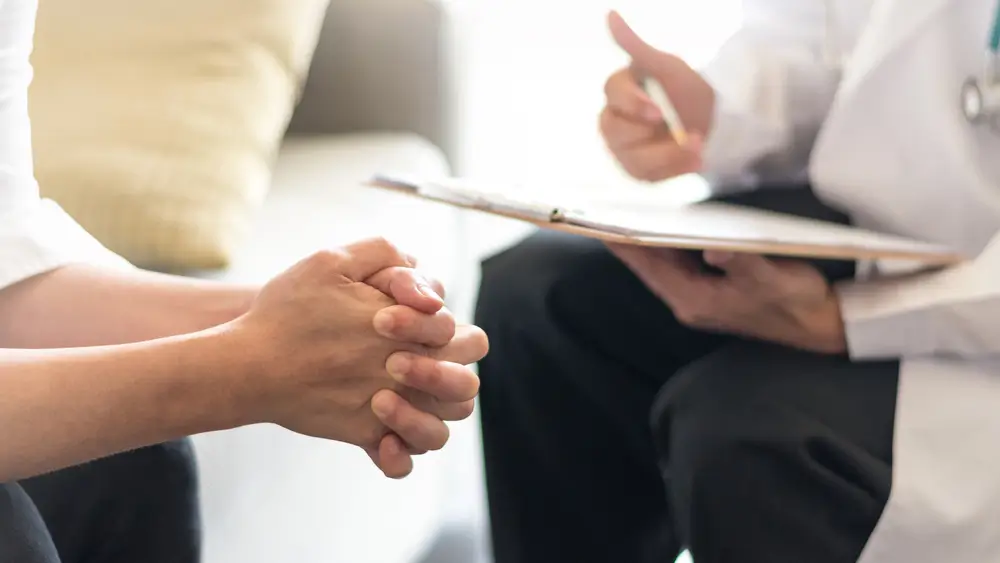Medication-Assisted Treatment (MAT) in Los Angeles
Opioid addiction, also called opioid use disorder (OUD), is a problem across the country. In California, almost 7,000 people died from an opioid-related overdose in 2022 – and there were over 83,000 opioid-related overdose deaths across the United States, with more than 90% involving fentanyl. The rising numbers of opioid use and addiction is becoming a public health crisis, requiring increased efforts in prevention, treatment, and recovery support services.
Launch Centers knows the impact that opioid addiction can have on a person’s life – physically, mentally, and emotionally. Our medication-assisted treatment (MAT) program has been designed with the perspective that every person’s recovery needs are different and unique, and focusing on long-term success.


What is Medication-Assisted Treatment?
MAT is a form of therapy used to treat substance use disorders, particularly those related to opioids like heroin and prescription pain relievers. MAT combines medications with counseling and behavioral therapies to provide a unique approach to the recovery process. The medications used in MAT are approved by the Food and Drug Administration (FDA) and are administered under the supervision of healthcare providers.
Medications Used in MAT
The goal of MAT is to normalize brain chemistry and block the euphoric effects of alcohol and opioids. This helps to relieve physiological cravings and normalize body functions without the negative effects of the abused drug. Some common medications used in MAT include:
- Methadone: Used to prevent withdrawal symptoms and reduce cravings in opioid addiction.
- Buprenorphine: Reduces or eliminates opioid cravings without producing the high or dangerous side effects of the drug being replaced.
- Naltrexone: Blocks the effects of opioids at the receptor level and is used for both opioid and alcohol dependence.
MAT has been clinically proven to reduce the need for inpatient detoxification services and is effective in increasing survival rates, treatment retention, and improve the ability to gain and maintain employment.
Therapies Used with MAT
There are several types of counseling and behavioral therapies commonly used alongside medication-assisted treatment. These therapies are integral to addressing the psychological aspects of addiction and helping people develop skills for long-term recovery. Here are some of the key types of therapy used in MAT:
- Cognitive Behavioral Therapy (CBT): CBT is a popular form of therapy that helps patients identify and change negative thinking patterns and behaviors. It teaches individuals how to cope with cravings, avoid situations that might lead to drug use, and replace drug-using activities with constructive and rewarding activities.
- Motivational Interviewing (MI): This therapy enhances an individual’s motivation to change by resolving ambivalence. The therapist helps the patient identify their readiness to engage in treatment, encouraging statements of intent and a plan for making changes to their addictive behaviors.
- Contingency Management (CM): CM is based on the idea of providing incentives to reinforce positive behaviors such as abstinence. This approach uses vouchers or small cash rewards for patients who demonstrate these positive behaviors (e.g., staying drug-free, as shown in drug tests).
- Family Therapy: Often, addiction affects not just the individual but also the family. Family therapy involves family members in the treatment process and aims to repair and improve family dynamics. It helps educate family members about addiction and involves them as a supportive part of the recovery process.
- Group Counseling: In group counseling, individuals share their experiences in a peer-supported environment which can foster a sense of community and shared purpose. It also allows individuals to learn from the experiences of others who are facing similar challenges.
- Dialectical Behavior Therapy (DBT): Originally developed for borderline personality disorder, DBT has been adapted for substance abuse treatment. It focuses on teaching skills in four key areas: mindfulness, distress tolerance, emotion regulation, and interpersonal effectiveness.
What to Expect During Medication-Assisted Therapy
Entering MAT is a major step towards recovery, and it’s important to have realistic expectations and a strong commitment to the treatment process. The goal of MAT is not only to stop addiction but also to improve the overall quality of life. This treatment is designed to address everything about addiction, including its physical, psychological, and social aspects. Here’s what you can expect when entering a MAT program:
Initial Assessment
The treatment usually begins with a thorough assessment that includes medical, psychological, and social evaluations to tailor the treatment plan to the individual’s specific needs.
Introduction to Medication
Depending on the substance dependency, medications like methadone, buprenorphine, or naltrexone may be prescribed to manage withdrawal symptoms and reduce cravings. The dosage may be adjusted frequently to find the right balance that minimizes withdrawal symptoms without inducing euphoria.
Regular Monitoring
Regular visits to the treatment provider are required to monitor the effectiveness of the medication and make any necessary adjustments. Urine or blood tests may be conducted regularly to monitor abstinence from illicit drugs.
Counseling and Behavioral Therapies
One-on-one sessions with a counselor will be scheduled to address the psychological aspects of addiction. Participation in group and family therapy sessions is strongly encouraged because they provide support and an opportunity to learn from the experiences of others in recovery.
Support Services
You may have the opportunity to participate in educational workshops that help you learn more about addiction and the skills necessary to recover. MAT facilities also offer relapse prevention education, providing you with strategies that help identify and manage triggers to reduce the probability of relapse occurring.
Are you ready to change your life?
Take action now.
Launch Centers Medication-Assisted Treatment in Los Angeles
Choosing the right partner for medication-assisted treatment in Los Angeles is crucial for recovery. Launch Centers understands this and knows that programs need to be as unique as the individual it is treating – that is why our MAT is designed to provide medication-assisted help for addiction while targeting underlying dual diagnosis that may be fueling the addiction.
Our skilled staff is ready to help you take the next step toward your recovery – if you or a loved one is considering medication-assisted treatment in Los Angeles, reach out to Launch Centers today.

